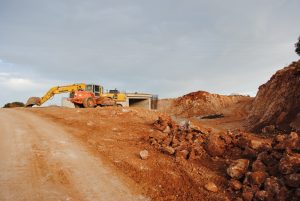If you’re planning an excavation project, it’s essential to choose the right technique that best serves your needs without compromising safety, efficiency, and the environment. As you weigh your options, you’ll undoubtedly come across the more traditional approaches to excavation and the innovative, eco-friendly method of vacuum excavation. But how do they stack up against each other?
In this article, we’ll compare vacuum excavation and traditional excavation methods, delving into their benefits, drawbacks, and applications so you can make a well-informed decision for your Perth project. By understanding the differences between these methods and their effectiveness, you’ll be equipped to choose the best excavation approach that aligns with your project requirements while enhancing safety, preserving the environment, and boosting productivity.
Ready to dig in? Let’s dive into this side-by-side comparison and help you excavate with confidence!
Understanding Traditional Excavation Methods
Traditional excavation methods, often referred to as mechanical excavation, typically involve using heavy-duty machinery like excavators, bulldozers, and backhoes to remove soil, rocks, and other debris from a designated area. These methods have been time-tested and used in numerous construction projects for years. However, traditional excavation is not without its drawbacks, which include higher risks of damaging underground utilities, increased environmental impact, and a greater likelihood of safety hazards.
Comparing Vacuum Excavation: An Innovative Alternative
Vacuum excavation, also known as hydro or air vacuum excavation, is an advanced technique that uses pressurised water or air to break up soil and a powerful vacuum to remove the debris. This method offers increased precision and control, significantly reducing the potential for causing damage to utilities and existing infrastructure. With its environmentally friendly advantages and greater safety levels, vacuum excavation has become a popular alternative for many industries in Perth and beyond.
-
Safety Concerns: Traditional vs. Vacuum Excavation
Trenching Accidents:
Traditional excavation often involves digging deep trenches, increasing the risk of accidents like cave-ins, which present significant hazards to workers on-site. Vacuum excavation is a safer solution as it reduces the risk of trench collapses by only digging the necessary depth.
Damage to Underground Utilities:
Traditional digging techniques can cause accidental damage to gas lines, electricity cables, and water pipes. On the other hand, vacuum excavation drastically reduces the risk of utility damage, thanks to its precise and non-destructive nature.
Noise Pollution:
Heavy machinery required for traditional excavation tends to be noisy and disruptive to workers and surrounding communities. Vacuum excavation operates much quieter, reducing noise pollution and fostering better working conditions.
-
Efficiency: Time and Cost Analysis
Project Duration:
Vacuum excavation allows precise targeting of soil excavation, reducing the time spent on backfilling and project restoration. This efficiency results in shorter project timelines compared to traditional methods that often require extensive groundwork before actual excavation can begin.
Cost Efficiency:
Factoring in damages caused by accidents and higher restoration needs, traditional excavation may end up being more expensive. Vacuum excavation has a lower risk of damaging utilities, ensuring fewer unforeseen expenses, making it a more cost-effective choice in the long run.
Suitability for Different Ground Types:
Both vacuum and traditional excavation can handle various soil types, but vacuum excavation excels in congested areas where precision is required. With the ability to handle tight spaces and complex environments, it proves more versatile and efficient across multiple project types.
-
Environmental Impact and Preservation
Disruption to Vegetation and Ecosystems:
Traditional excavation techniques tend to cause significant disturbance to the environment, including damage to vegetation and local ecosystems. Vacuum excavation minimises ecological disruption by targeting specific areas and minimising overall impact, making it an environmentally friendly option.
Soil Erosion and Stability:
Heavy machinery used in traditional excavation can contribute to soil erosion and instability on-site. Vacuum excavation mitigates this risk with its controlled and precise approach, maintaining soil stability and reducing erosion concerns.
Carbon Footprint:
Choosing vacuum excavation can help reduce your carbon footprint as it generates fewer emissions compared to traditional excavation methods. Utilising eco-friendly technology, vacuum excavation aligns with green construction practices and supports sustainable development goals.
-
Versatility and Applications
Construction and Utilities:
Vacuum excavation has quickly become the preferred method for installing and maintaining utilities in Perth, thanks to its precision, safety, and speed. Its ability to work in confined spaces without causing damage to utilities and infrastructure makes it ideal for urban projects with congested environments.
Landscaping and Tree Preservation:
Garden beds, retaining walls, and other landscaping projects can benefit from the precise and non-destructive nature of vacuum excavation. It helps preserve tree roots and plant life, leading to more successful landscaping results without risking long-term damage to vegetation.
Road Repairs and Maintenance:
Vacuum excavation is perfect for road repairs and maintenance because it allows for a swift, precise excavation to address damage and utility access without disrupting the surrounding area. This advantage makes it the go-to method for minimising delays and ensuring a smoother flow of traffic during roadworks.
Vacuum excavation has proven its value by addressing the shortcomings of traditional excavation methods through increased safety, efficiency, and environmental preservation. As these innovative techniques continue to be adopted across Perth and the world, the benefits and applications of vacuum excavation will only grow, solidifying its place as a crucial part of future construction and excavation projects.
Embrace Vacuum Excavation for a Safer and Greener Road Infrastructure
Vacuum excavation is poised to revolutionise road repair and maintenance in Perth, delivering unparalleled safety, efficiency, and sustainability benefits. By adopting this advanced, non-destructive method, infrastructure professionals can ensure the highest standards in road maintenance while mitigating the environmental impact of their projects.
If you’re ready to harness the power of vacuum excavation for your road repair and maintenance needs, contact iVac WA today. Our seasoned team and cutting-edge equipment will help you achieve outstanding results with minimal disruption to the community and the environment. Connect with iVac WA now and pave the way toward a safer, more sustainable future for Perth’s road network.

